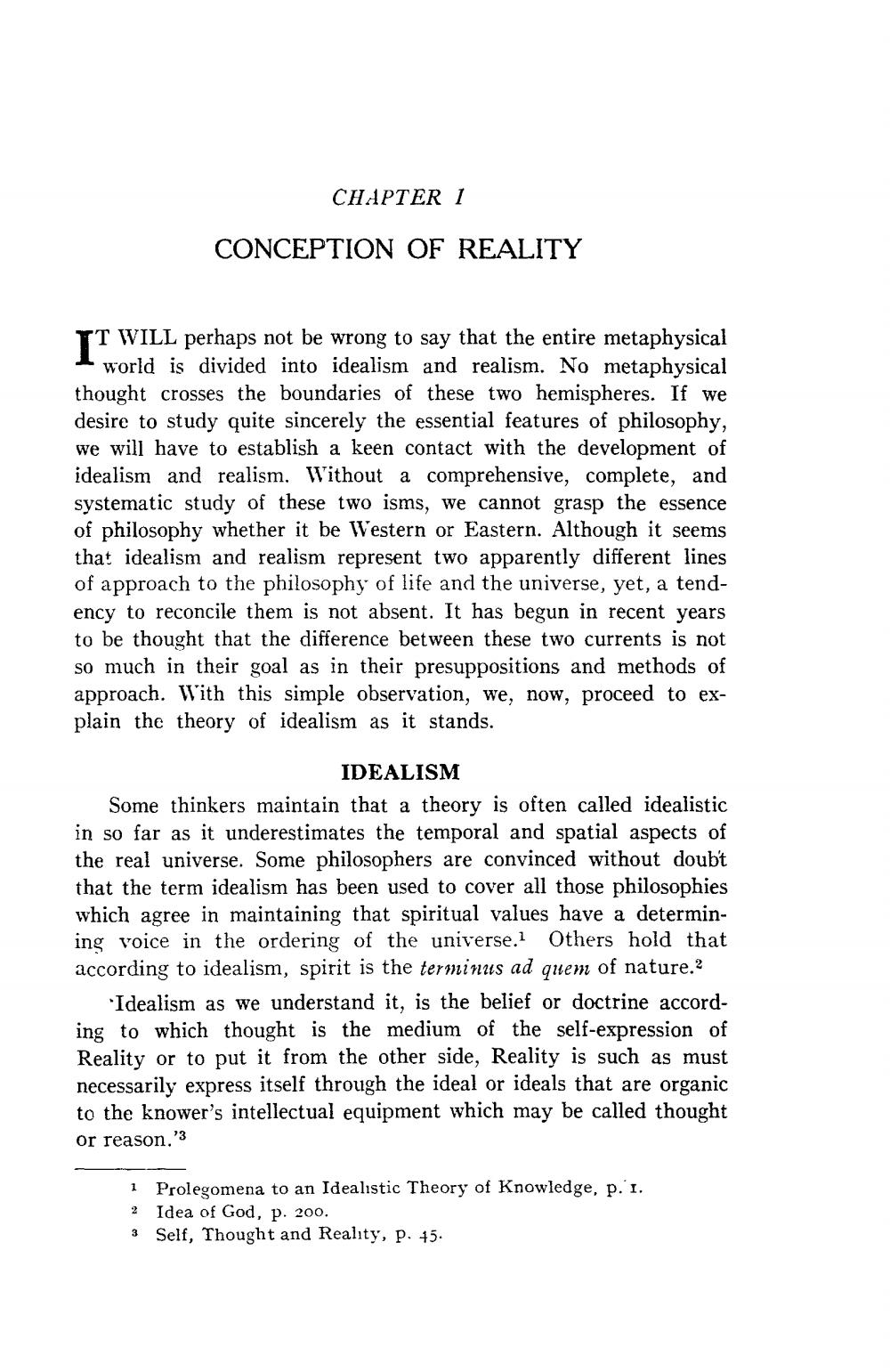________________
CHAPTER 1
CONCEPTION OF REALITY
TT WILL perhaps not be wrong to say that the entire metaphysical 1 world is divided into idealism and realism. No metaphysical thought crosses the boundaries of these two hemispheres. If we desire to study quite sincerely the essential features of philosophy, we will have to establish a keen contact with the development of idealism and realism. Without a comprehensive, complete, and systematic study of these two isms, we cannot grasp the essence of philosophy whether it be Western or Eastern. Although it seems that idealism and realism represent two apparently different lines of approach to the philosophy of life and the universe, yet, a tendency to reconcile them is not absent. It has begun in recent years to be thought that the difference between these two currents is not so much in their goal as in their presuppositions and methods of approach. With this simple observation, we, now, proceed to explain the theory of idealism as it stands.
IDEALISM Some thinkers maintain that a theory is often called idealistic in so far as it underestimates the temporal and spatial aspects of the real universe. Some philosophers are convinced without doubt that the term idealism has been used to cover all those philosophies which agree in maintaining that spiritual values have a determining voice in the ordering of the universe. Others hold that according to idealism, spirit is the terminus ad quem of nature.?
Idealism as we understand it, is the belief or doctrine according to which thought is the medium of the self-expression of Reality or to put it from the other side, Reality is such as must necessarily express itself through the ideal or ideals that are organic to the knower's intellectual equipment which may be called thought or reason.'3
1 Prolegomena to an Idealistic Theory of Knowledge, p. 1. 2 Idea of God, p. 200. 3 Self, Thought and Reality, p. 45.




